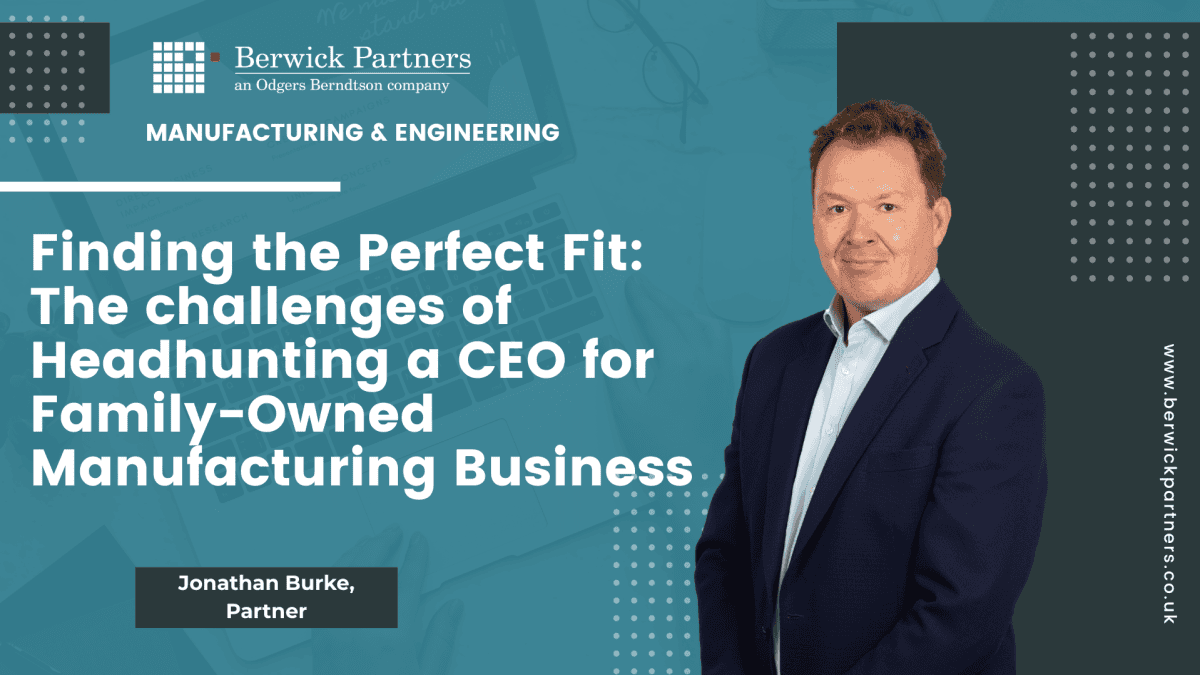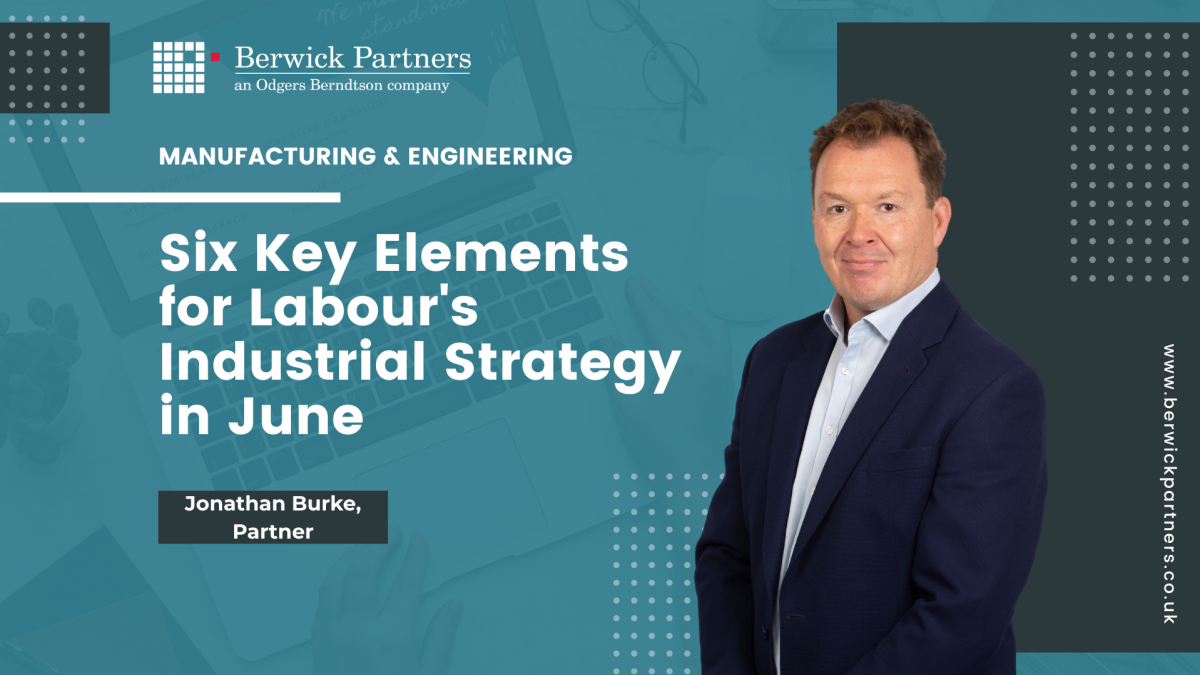Board Evolution: An interview with Rob Fenwick – the former Chief Governance Officer of Howden Joinery Group Plc
Board Evolution – Berwick Partners are currently undertaking a series of interviews with business leaders, to understand how they and their Boards have adapted and reacted to the increasing complexities of the world in which we operate. We are examining the importance of leadership DNA and the behaviours, traits and skills that are vital to an evolving Board.
As part of the research, Berwick Partners’ Jonathan Burke spoke to established leaders from the UK’s Manufacturing sector, from both the corporate Plc and SME environments. In our latest interview we hear from Rob Fenwick – the former Chief Governance Officer of Howden Joinery Group Plc – who has enjoyed a highly successful 20-year career in the UK’s leading kitchen manufacturer.
Considering the turmoil and uncertainty that COVID-19 has caused, what should be done to prepare the board / ExCo, to ensure they can rise to new and unexpected challenges in the future?
All Directors have to balance their responsibilities under S172 of The Companies Act, alongside the short-term and long-term needs of the business. The ‘basics’ are absolutely key here: any Executive Team that was flattering itself that it had the right understanding of its business as the pandemic hit will have been found wanting.
Being in a business that does have a good grasp of the basics, can enable the Board to support and challenge the ExCo and vice-versa, and enable the ExCo to deal with the issues of running the organisation.
For instance, during COVID-19 the CFO’s team will have their ‘eyes’ all over the business’s covenants, and its cash-flow; the Supply Chain team will have had had to react quickly to disruption in supply of products from China – and this has raised the issue of supply chain resilience. In a group like Howdens, where it has multiple suppliers located offshore and near-shore, it can take a couple of knocks in this type of situation.
When it comes to demand of products and services, the pandemic has shown that companies need an effective online offering. For some companies that have relied on physical interaction between the supplier and their customers this has accelerated their shift to adding digitally enabled services like ‘call or click and collect’ to its service offering.
What do you believe to be the ideal structure for a future-proof board/ExCo? Should it represent any functions or specialisms that it does not currently?
Having a strong and experienced Chairman, in these times, is essential. Being able to advise on key issues such as deferring dividends, share buy-backs, how to manage shareholders, and what advisors to call upon, is hugely beneficial. It is about knowing the key questions that need to be asked.
A Board and ExCo that has a lot of bandwidth is key – this provides the ability to navigate through a lot of things at the same time and helps you ‘manage in the grey’. From a corporate governance point of view every board needs a strong CFO.
Given the breadth of issues that boards need to adapt to, such as Brexit, Sustainability, Technology Transformation, D&I, Supply Chain & Business Resilience, has Covid accelerated or slowed the pace of change on these subjects?
For Howdens in particular, the crisis has proven how ‘out there’ our supply chain is and has accelerated our ecommerce capability. From a broader perspective we have all seen the huge impact it has had on Environmental, Social, and Corporate Governance (ESG).
From a sustainability perspective, the ‘social conscience’ of the nation has been awakened, with increased awareness of our ‘key workers’ and the NHS; people have seen how lockdown has reduced pollution and this has led to us being less tolerant of the abuse of our green space – such as no waste to landfill.
Society and corporate organisations are now more focussed than ever on doing the right thing. If your credentials in sustainability are strong, you can demonstrate this to your stakeholders.
In terms of social impact, the pandemic has made organisations ask themselves: how are we taking care of our staff; how are we looking out for our customers; how are our suppliers looking after their people? If you have good governance in your business, these important issues will be addressed in the right way.
Often threats evolve faster than a business can hire an ‘expert’ to cure it. Has the pandemic shown us that good leadership and breadth of softer skills trump expertise?
Does the leadership team know its stuff? Leadership shines when it makes the big decisions correctly; so, judgement is key, as are behaviours. Leadership is being watched every day, so, empathy with your people is essential – being honest about what you tell them is so important.
One of the most valuable traits of an effective leadership team is bandwidth – the ability to operate outside of their core expertise. Curiosity is also key – putting the challenge out there and having the difficult conversations.
Can you truly have a board/ExCo for all seasons – boom, bust, crisis, recovery, or growth? How do effective leaders bring the best of themselves to bear?
I think you can have a ‘leadership culture’ that asks the questions about all the seasons – being honest about the skills you have around the leadership table and where you need support from external advisors.
Post-COVID-19, does the relationship between the NED’s/main board and ExCo need to evolve?
There are a lot of ingredients to consider here: politics, dynamics and personalities. You absolutely need a strong Chairman for a dynamic CEO. If an NED were to try to tell a CEO how to do his job he would kick back.
The NED’s need to provide positive challenge and advice to the leadership team and let them lead the business. A good NED knows where the balance is and will add value with their experience – and often this is about going back to basics or a deep understanding of a particular subject.
For more information please contact Jonathan Burke, Head of the Manufacturing and Engineering practice at Berwick Partners.






